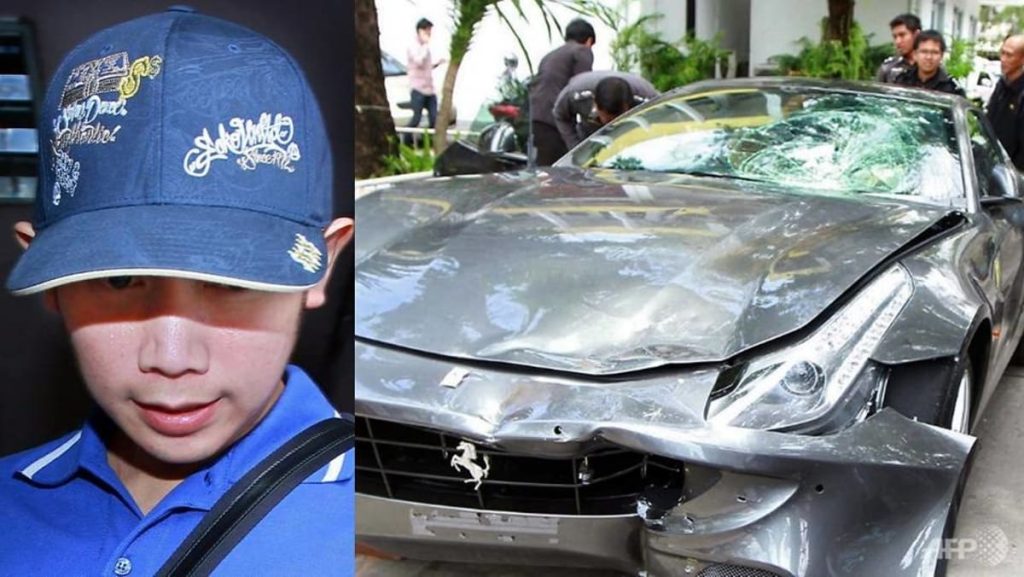A former senior Thai police officer, along with others, denied charges of evidence-tampering in a deadly hit-and-run crash involving Vorayuth “Boss” Yoovidhya, heir to the Red Bull fortune, more than a decade ago. Vorayuth was accused of hitting a policeman’s motorbike with his Ferrari in 2012, killing the officer. This is the first time anyone has appeared in court on charges related to the crash. Former national police chief General Somyot Poompanmoung and six others denied charges of malfeasance and cover-up during a hearing in Bangkok.
The case surrounding Vorayuth’s hit-and-run has drawn significant public attention in Thailand as a symbol of the perceived impunity enjoyed by the country’s wealthy and well-connected individuals. Vorayuth faced charges of causing death by reckless driving and possession of illegal substances but managed to evade prosecutors and flee Thailand shortly after the incident. He only returned to Thailand last year, sparking renewed interest in the case and a push for accountability from the police officer’s family and members of the public.
The alleged evidence tampering and cover-up by General Somyot Poompanmoung and others have further highlighted the issues of corruption and lack of accountability within the Thai justice system, especially when powerful individuals are involved. Critics argue that cases like Vorayuth’s hit-and-run showcase a culture where the wealthy and well-connected can avoid facing justice for their actions, perpetuating a sense of injustice among the public and eroding trust in the legal system.
The high-profile nature of the Vorayuth case has raised questions about the effectiveness of Thailand’s legal system in holding individuals accountable regardless of their social status or wealth. Calls for reform and transparency within the justice system have intensified as a result of this case, with some advocates pushing for greater oversight and mechanisms to prevent the abuse of power and influence by those in positions of authority.
Despite the denial of charges by General Somyot Poompanmoung and others involved in the alleged cover-up, the case continues to generate public interest and scrutiny, with many observers hoping for a fair and transparent legal process that addresses the accountability of all individuals responsible for the hit-and-run incident. The outcome of this trial and any subsequent actions taken by authorities will likely have a significant impact on public perceptions of justice, fairness, and equality under the law in Thailand.
In conclusion, the Vorayuth hit-and-run case represents a broader issue of impunity and corruption within the Thai justice system, particularly when powerful and wealthy individuals are involved. The alleged evidence tampering, cover-up, and subsequent legal proceedings underscore the need for comprehensive reforms that ensure accountability, transparency, and fairness for all individuals regardless of their social status. The outcome of this case will serve as a litmus test for the Thai legal system’s ability to uphold the rule of law and deliver justice, thereby restoring public trust in the integrity of the judiciary and law enforcement agencies.















